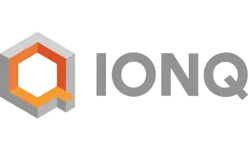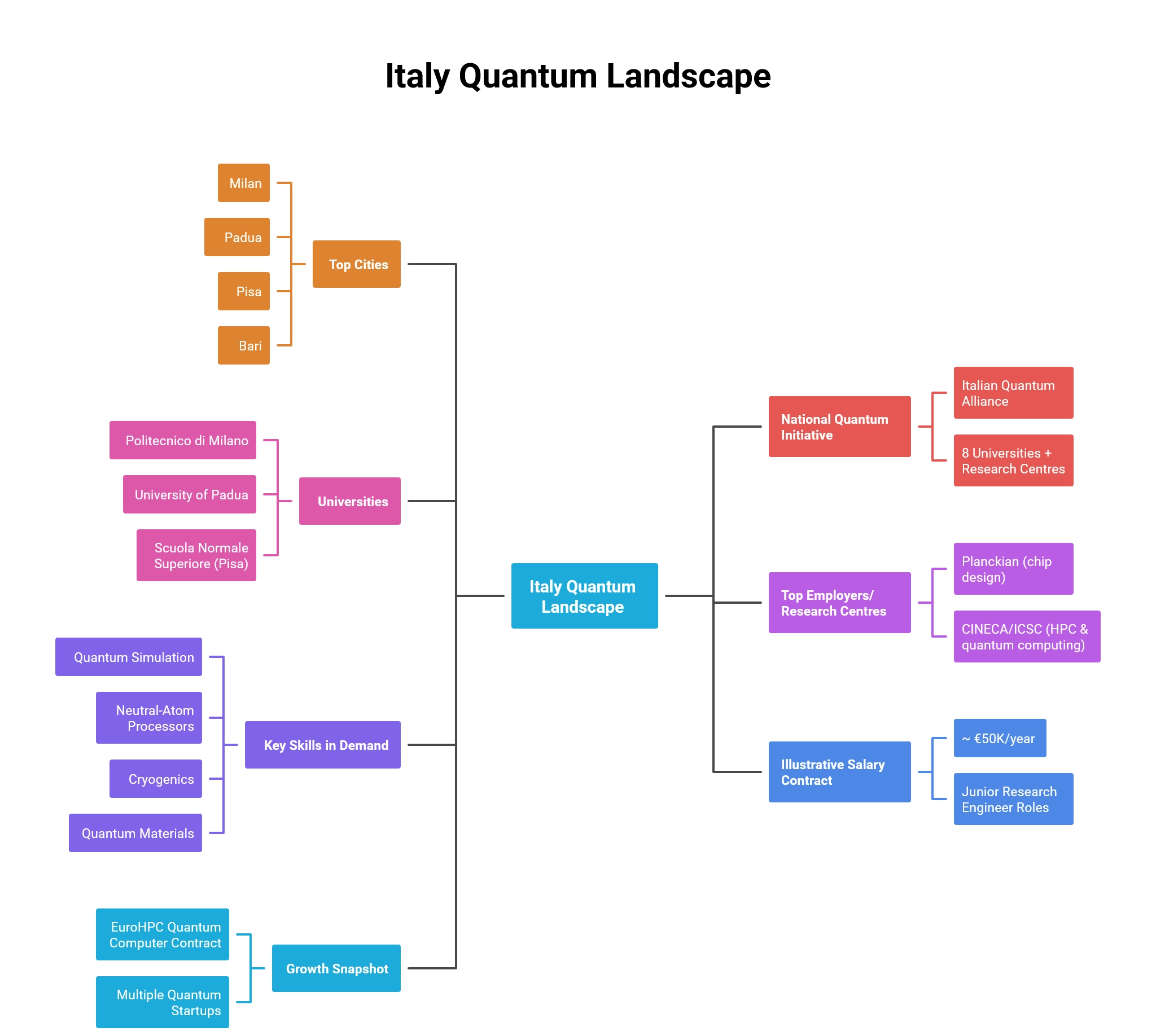












































Quantum Careers Near You in Italy
What You Need to Know
Italy is building a strong quantum ecosystem with government investment, world-class universities, and emerging startups. Italy is offering research opportunities in quantum computing, photonics, and superconducting technologies.
Italy’s commitment to quantum innovation is shaping a new generation of European technology leaders. Italian National Institute for Nuclear Physics (INFN)
What is the average salary for quantum computing jobs in Italy?
Italy saw workforce growth bringing them up to speed with countries like Netherlands in quantum. Salaries typically range from €35,000-€50,000 a year for entry-level PhD students and postdocs. €55,000-€75,000 for mid-level researchers. €80,000-€110,000+ a year for senior positions at universities and companies like SEEQC.
Suggested Read: Quantum Jobs Salaries
Which Italian cities have quantum computing opportunities?
- Bologna:- CINECA supercomputing center & National HPC/Quantum Research Center
- Milan:- Ephos quantum photonics chip manufacturing, Polytechnic University research
- Naples:- SEEQC's quantum computer facility at Federico II University;
- Rome:- La Sapienza University's photonic quantum computing research;
- Padua:- Trapped-ion quantum computer center
What types of quantum roles are available in Italy?
The Italian Research Center on HPC, Big Data and Quantum Computing aims to develop essential infrastructure for processing large datasets and creating quantum applications.
There are openings for quantum researchers, software engineers, developers of superconducting and photonic systems, and postdoctoral fellows.
Which companies and institutions hire quantum professionals in Italy?
Rotom and Ephos, both photonic chip companies in Milan, are two other employers. CINECA is the largest consortium in Italy. They are supporting 69 universities and working with 25 national research institutions.
SEEQC conducts advanced quantum research and, in partnership with Federico II University, runs Italy’s first quantum computer in Naples.
At a time when the Italian government has shown a willingness to invest in quantum technologies, having the first functioning quantum computer is a great opportunity. Oleg, SEEQC Executive

What qualifications do Italian quantum jobs require?
Most jobs require a master's or PhD in computer science, engineering, or physics. CINECA, along with Bologna, Padua, Sapienza Rome, Milan Bicocca, and Turin, are leading institutions in Italy’s quantum research consortium.
Knowledge of quantum programming in Python, along with proficiency in tools such as Qiskit or Cirq, and proficiency in both Italian and English, are other essential requirements.
Suggested Read: Get Quantum Jobs without PhD.
Can international professionals get quantum jobs in Italy?
Definitely! Italian universities and research institutions actively recruit international postdocs and researchers. CINECA's collaboration with AWS focuses on enhancing quantum computing research and education for Europe.
For EU citizens, work permits are issued more rapidly. On the other hand, non-EU researchers require sponsorship from the respective university or company
What is the future outlook for quantum jobs in Italy?
The Italian National Recovery and Resilience Plan (PNRR) allocates €320 million to finance the National High-Performance Computing (HPC) and Quantum Computing Center.
Q-Alliance, a new quantum initiative in Lombardy, plans to establish "the most powerful quantum hub in the world" with quantum partners IonQ and D-Wave, an indication of promising growth.
Our goal is to build quantum devices that redefine performance and precision. University of Naples Federico II
What makes Italy attractive for quantum computing careers?
Italy offers a wealth of cultural resources, advanced research opportunities and a lower cost of living compared to quantum centers in northern Europe. It also benefits from strong partnerships with universities and growing support from the government.
In Milan, Ephos and SEEQC in Naples are developing promising quantum technologies, and the growth of these companies, along with academic positions, should lead to innovative startups.
Suggested Read: Quantum Computing Jobs Italy

.svg)

